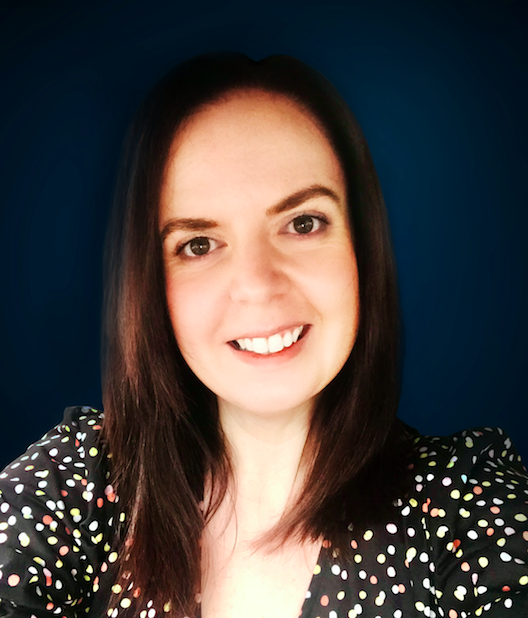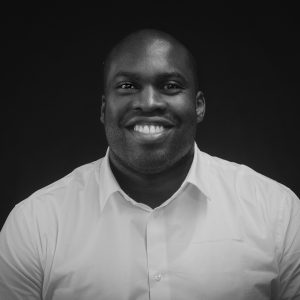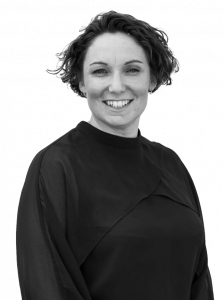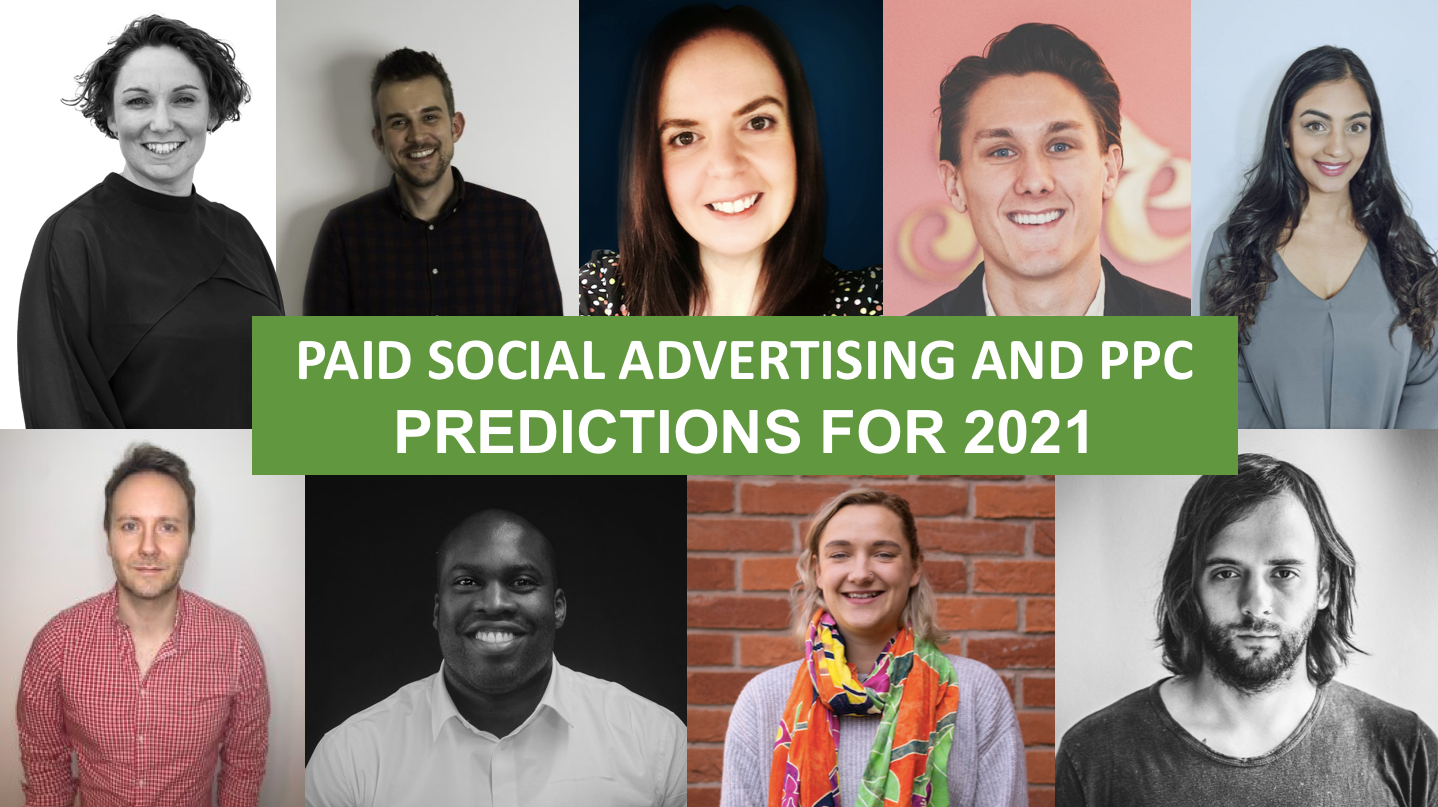- TechRound has collected Paid Social Advertising and PPC Predictions for 2021 from industry experts
- 2021 will see “social media and e-commerce become even more intrinsically linked” according to Luke Tobin
- Byron Marr predicts that we will “see a continued shift toward machine learning and automation into both PPC and paid social channels”
2020 was a very unpredictable year for many businesses as a result of the COVID-19 pandemic. 2020 forced advertisers to evaluate their media plans and adjust to the current climate. With many shopping online, businesses learned to adapt and focus on advertising online through Paid Social Advertising and Pay Per Click (PPC) Advertising.
Although we cannot be sure of what to expect this year, we asked leading industry experts to share their predictions on advertising in 2021. Take a look at the 9 industry experts we heard from, sharing their views and predictions for 2021.
Our Panel of Experts:
- Luke Tobin – MD at Digital Ethos
- Macy Edwards – Director of Digital Paid Media at ClickThrough Marketing
- Jacob Boe – General Manager at Relatable
- Nikita Panchal – Marketing Director at Bubble Agency
- Owain-Christian Powell – Digital Marketing Expert at OCP Digital Marketing
- Louise Cumbee – Head of Digital at Numagoo
- Asher Gordon – Head of Paid Media at Tug
- Byron Marr – Head of Paid Media at Aira
- Laura Moxham – Managing Director at YBA PPC
For any questions, comments or features, please contact us directly.

Luke Tobin – MD at Digital Ethos

“As we’ve seen in 2020, Google is getting much smarter at matching the intent of a search term, so I predict that we’ll see fewer broad matches for non-transactional keywords which will help to make campaigns more effective.
In terms of campaigns, as you’re able to automate them more and more every year, campaign performance will become less about the structure and optimisation and more about the quality of your website, product feed and creative.
A bit of a wild prediction but I also think that in 2021, we could see Google shopping allowing you to purchase directly from the platform without going to the vendor’s website in a bid to compete and steal market share from Amazon.
In terms of Paid Social Advertising, I think that we’ll see the continued development of in-app marketplaces that could look like variable products, live inventory, time limited offers, upsells, cross-sells and potentially even Just Eat style commission for promoting products (essentially e-commerce within the app).
I think that we will see social media and e-commerce become even more intrinsically linked in 2021, we’ve seen it with Facebook and Instagram so I’m sure we can expect it from the likes of Tik Tok.”
Macy Edwards – Director of Digital Paid Media at ClickThrough Marketing

Facebook Shops Evolution
“Following the big announcement in Spring 2020, the ‘Digital Shop’ is only going to be more important as we enter 2021 under the pandemic conditions.
Consumers love convenient, quick, and easy online shopping experiences which is what Facebook shops is replicating. The community around businesses on social media means that your shop can go viral and spark conversation quicker than ever!
Pinterest’s visual search algorithm
In 2020 Pinterest announced a partnership with Shopify to give small businesses and merchants a quick way to upload product catalogues to Pinterest. This new avenue is powerful in driving sales and revenue for brands and businesses.
People come to Pinterest with an intent to plan and purchase. The number of Pinners who have engaged with shoppable Product Pins has increased 44% year-over-year, and total traffic to retailers has increased by 2.3x year-over-year. And, due in part to early beta testing with Shopify, catalogue feed uploads increased 144% in the first quarter of the year.
TikTok’s branded lenses and hashtag challenges
TikTok was a big hit in 2020 and is already the 6th largest social network. With built-in video editing tools it’s been popular with a younger audience but during lockdown we have seen an uptake of using the platform for all ages. Over 41% of TikTok users are 16-24 years old and another 24.5% are 25-34 years old. TikTok users typically spend on average 46 minutes a day on the app.
Branded lenses are set to be a big advertising opportunity in 2021 due to the importance in augmented reality in a touchless world. 64% of users have tried face filters and lenses. For example, MAC is using AR to allow people to try on their makeup, not only brand awareness but also allowing users to discover their products.
Hashtag challenges are one of their main ad types, these challenges prompt the user to engage directly with the brand and produce their own videos taking the challenges. Great way to make your brand go viral! At least 35% of TikTok users have participated in this challenge.”
For any questions, comments or features, please contact us directly.

Jacob Boe – General Manager at Relatable

The pandemic has made influencers more ‘real’ than ever before – brands that understand their true potential will win at Paid Social in 2021
“The past five years have seen a surge in companies of all sizes turning to influencers to create content that customers can actually relate to. On its own, this can make for incredibly impactful campaigns with great results. But until now, it has been clear that influencer teams of marketing departments have been working in silos, with Paid Social teams unaware of the true power of influencer content across all communications.
Last year’s restrictions saw influencers humanised, with all posts, live streams and stories created from their couch or bedroom – living the exact same lives as their followers.
In 2021, we will see smart Paid Social departments take advantage of the momentum created by the pandemic, to truly embrace the impact of relatable content created by influencers to push also in their marketing efforts. Customers don’t want to see polished pictures representing a pre-or even post-pandemic life pop up in their feeds. They want to see real people, using real products, in the strange, albeit real environment they currently live in. So why double up on content creation and costs, when you can make use of communication already paid-for by your influencer marketing department?”
Nikita Panchal – Marketing Director at Bubble Agency

“2021 has many revolutionary transformations in the works, and PPC is no exception. Google surprised many marketers globally in 2020 (some examples include an updated search query report, new ad extensions and new audience targeting) and these advancements are only going to resume.
Firstly, when thinking about forecasts for paid search, automation advancements immediately come to mind.
Digital marketers will likely see a continuation of automation for paid search techniques. Examples such as smart bidding and responsive search ads are already managing tasks previously done by hand. This will only continue to be perfected as automation flourishes over the course of the year – which means that paid search professionals really have little choice than to adapt.
Secondly, voice search has a growing space in the world of PPC, and its slice of the cake is expanding day by day. As humans, we treat voice assistants in a more human like way than a search box on Google. Due to the conversational nature of voice search, we talk to voice assistants in a colloquial, informal way. We use natural language to talk to voice assistants, which means our queries are longer.
For example, rather than typing “London weather” to check the forecast, people will say, “Okay Google, how is the weather today?” There are huge differences between those two phrases. It is all about the way humans speak naturally to each other and not to machines. Marketers will need to take this into account when steering PPC strategies.”
For any questions, comments or features, please contact us directly.

More from Interviews
- Inside Mobile Payments with Bojoko’s Ville Saari
- Meet Steve Haskew, Group Director of Sustainability and Growth At Circular Computing
- A Chat with Hakob Astabatsyan, CEO and Co-Founder of Synthflow AI
- Meet Ernesto Suarez, CEO at Travel Insurance Provider: Gigasure
- Under Pressure and On the Clock: Gurhan Kiziloz’s Nexus International to Hit $1.45B Revenue in 2025
- Daisy Ip of InvestHK: Why Hong Kong Continues To Grow In Popularity Amongst UK Fintech Startups
- A Chat with AJ Balance, Chief Product Officer at Grindr
- A Chat with Jennifer Cohen Solal, CEO and Co-Founder at Private Sales Platform: Hushday
Owain-Christian Powell – Digital Marketing Expert at OCP Digital Marketing

“At this point in 2021, when the UK government hasn’t got a roadmap out of lockdown, many of us marketers (as well as our clients) are wondering why even bother getting a crystal ball out?
Working with hotels especially during this time, many may assume that many that aren’t open to keyworkers and are closed during lockdown may have halted marketing activity. On the contrary with my hotel clients – it’s been a very active 2020 and start to this year behind the scenes with paid advertising for hotels – being reactive to communicating in a clear/concise manner to existing/new audiences. Not just that they’re closed – but there’s light at the end of the tunnel.
Maintaining engagement through effective forward planning with advanced stays for Spring/Summer 2021 (flexible/fully refundable – to reassure), drive home the safe/secure message and steps being taken. Gifting with vouchers that can be extended, competitions to win a night’s stay etc.
Also (although on reduced marketing spend due to slowdown/halt in bookings for the immediate future) using PPC and paid social to build audiences where other hotels may have downed tools during the pandemic – we’ve seen some strong results.
Broadly speaking though and in relation to your question, I’d come at this one from an angle of what I’d like to see happen in 2021 off the back of what I witnessed in 2020 and where we are to date. I’ll leave just the one point below as a hope for this coming year!
Small independent businesses will have to shift operations online in 2021
I’ve seen a mixed bag of cases in 2020. A number of my clients that have an effective ecommerce store as well as a physical store have seen online sales sky-rocket; particularly during the lockdowns where people don’t have access to shops and are reliant on deliveries.
Sadly, I’ve witnessed other local businesses struggle or go under during 2020. It’s been incredibly tough on all businesses, but those that haven’t survived either haven’t had an online presence, or a ‘standout’ online presence. If the high street is dying, a number of businesses aren’t maximising their presence on social media to build audiences, or to draw people into their shop/store even out of lockdown where they are operational. They’re just not posting, even organically in many cases.
FB is great for targeting local demographics, and untapped by many smaller firms. A number of SMEs have also failed to adopt a responsive website or ecommerce offering to tie together the customer journey into a seamless flow from social through to the conversion point on the website. At any point outside of a pandemic this would be a worry.
During a pandemic, it’s a massive cause for concern – so smaller businesses not advertising locally through Google Ads or FB ads, really need to take heed and learn from the massive lesson the pandemic has taught them with their stores being closed for sustained periods of time (with little to no rev generated) and online revenue channels being closed off for many.”
Louise Cumbee – Head of Digital at Numagoo

“The rise of first party data and creative PPC management.
My prediction for 2021 is that strategy for both PPC and Paid Social will be built far more around internal business intelligence and first party data.
It’s no secret that Google has already started to remove search terms from their reporting and the death of the Third-Party Cookie in Chrome is going to make it even harder to gather meaningful data to optimise campaigns. Google is also making changes to their Partners programme which, amongst other things, essentially enforce the adoption of their recommendations, whether they are good for the client or not.
I predict that this will create a divide between agencies and PPC managers working to keep their Google Partner badge and those working to deliver results for their clients.
Paid acquisition specialists that want to do the best for their clients will have to adapt and become more creative with optimisation strategies because they will no longer have the same level of data at their fingertips.
In 2021, collecting first party data directly from the client’s own audience or customers, by observing and analysing the way they use websites and apps, and combining that with CRM and sales data will be vital for running effective paid ads on any platform.”
For any questions, comments or features, please contact us directly.

Asher Gordon – Head of Paid Media at Tug

“This year we’ll see generic terms in PPC continue to become more expensive, meaning advertisers that would traditionally only use PPC in their campaign strategy will need to look at upper-funnel channels – like video and display – to boost awareness and drive brand searches. We’re also seeing Google put pressure on advertisers in this area.
At the end of last year, the tech giant started to take away search data, a move that will force advertisers to use broader keyword terms and bidding strategies if they want to achieve full market coverage. With Google taking away data sources, we’ll likely see marketers turn more to Microsoft advertising in order to achieve a better understanding of their markets and search queries and, in some cases, as a way to achieve a holistic view of data.
In terms of paid social, marketers will further diversify their channels in 2021, most notably across social platforms. With consumers spending more time online than ever due to extended lockdowns, advertisers will increase their coverage on social, particularly on platforms like TikTok, the channel for which we can expect to see the biggest percentage growth, but also on Facebook.
Looking at Facebook more closely, it’s safe to assume it will continue its ecommerce push this year, with the pandemic accelerating its rollout of Facebook Shops last year. I predict that we’ll start to see easier, more seamless ways to buy on social media, as well as an increase in augmented reality lenses that allow us to ‘try on’ items without leaving the app.
Lastly, data privacy will continue to feature in all conversations around paid media. The most recent measure to be announced was Apple’s iOS14 update which will give users the option to ‘opt in’ to sharing their data, as opposed to opting out. This means advertisers on social media will have less consumer data to work with, making it more difficult to target audiences.
As a result, marketers will likely begin to invest more in lead-generating formats that provide first-party data for their brands, allowing them to rely less on data owned by other platforms and tech giants.”
Byron Marr – Head of Paid Media at Aira

“My prediction for 2021 in paid media is that we will see a continued shift toward machine learning and automation into both PPC and paid social channels.
Over the past 12-18 months, we’ve seen this ramp up significantly with automated bidding strategies and dynamic ad formats outperforming and taking precedence over the more manual legacy account setups.
For advertisers this means a shift in terms of day-to-day responsibilities with campaign creation and management being simplified. Ultimately, this is a good thing as it means that we’re able to spend more time on the key strategic areas which impact bottom-line performance in a significant way, such as conversion rate optimisation and testing out new channels and market opportunities.
What this looks like for businesses is also positive. Never has there been more alignment between paid media and business goals. Automated bidding strategies have unlocked the ability for advertisers to not just bid for valuable actions but to also bid for the value itself in the form of revenue and revenue at target cost-efficiency.
We’re already also seeing key advertising sites such as Facebook implementing huge changes to their ad platforms attribution and reporting, in line with new privacy policies. With this in mind, it has never been so crucial for advertisers and businesses to ensure that their conversion data is being tracked accurately, feeding in the right signals and allowing automation to perform under the correct conditions.
Having an understanding of attribution and the role in which all of your channels play both paid and organic, in terms of how they influence the buyer’s journey, is now no longer an option but an essential skill set for marketers.”
Laura Moxham – Managing Director at YBA PPC

“After our experiences with 2020, many things could continue to change in the world during 2021 that can impact PPC. As general trends go, at YBA PPC we expect big inflation in CPCs (cost per click) with a shift to automated bidding, increased competition as businesses come out of the woodwork and confidence, and less transparency on search terms.
As the curtains on the economy open, businesses not currently advertising will experience inflated CPCs compared to the beginning of COVID. At that time we were seeing a significant drop in CPCs across most industries due to fewer advertisers, and less competition. Inevitably, and to put it in simple terms, as the number of advertisers outgrows that of advertising positions, CPCs naturally increase.
Advertising platforms have swathes of data on its users. For instance, who’s likely to click on what advert and when. This gives the platforms increased certainty of positive outcomes for their advertisers. In this aspect, automated bidding will almost certainly grow in strength as it will give increased power to its advertisers.
One recent change within Google’s platform is the ‘search terms’ report, where it has removed some visibility of the data, relying more on algorithms. The automated bidding will provide more accessibility to Google Ads for some businesses.
To note however where automation provides value, it will always require the human brain to guide its algorithms with strategic thinking and ensure outcomes are in line business goals.
Businesses need to take care to observe their market – what competitors are offering, not offering, how are they positioning themselves – to ensure that their offer is going to be more compelling. It is often the case that the smarter thinker can now compete against deep pockets.
Another consideration must be that businesses have good, cross channel strategy – PPC is only part of the mix. The left hand should be working in tandem with the right hand to give prospects a consistent experience. This should flow through from lead management, email marketing, remarketing, social media management and advertising, brand awareness with articles, podcasts, influencer marketing and product placement.
Without a doubt, some industries will be more affected than others. Look at 2020 – who’d have thought that the hospitality industry will be decimated? We need to consider the basics of economics here with supply and demand and meeting those in an economic and valuable way. One particular industry that will find it increasingly challenging is e-commerce. With the monumental rise of Amazon, small e-commerce advertisers selling common products that are sold cheaper on Amazon will struggle to make any headway.
Looking for a solution? If your company is investing in PPC, then investing in a PPC specialist (be that in house, an agency or freelancer), should pay for itself many times over. You wouldn’t go to the fish and chip shop for open-heart surgery. You go to those that can help provide the very best outcomes and guidance. Those with industry insight, a proven track record, can build a progressive roadmap of growth but is also able to adjust with a steady hand to navigate any choppy waters.”
For any questions, comments or features, please contact us directly.




